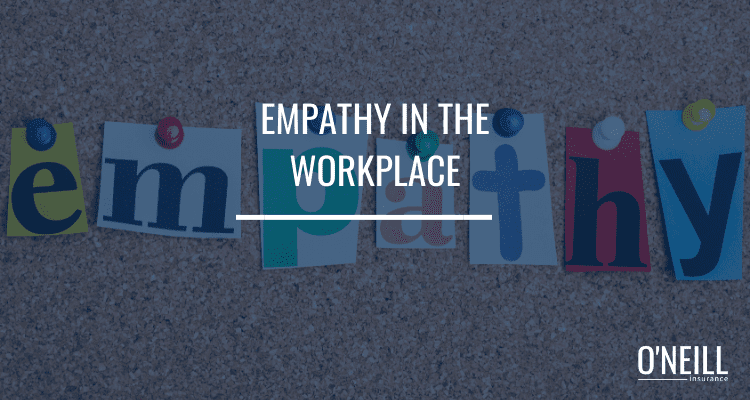
What’s your company doing to promote empathy in the workplace?
Because today, more than ever before, research suggests it’s imperative to build an empathetic workplace with intention.
According to a 2019 State of the Workplace Empathy study, 93% of employees say they’re more likely to stay with an empathetic employer.
But you see, there’s an Empathy Gap.
92% of CEO’s say their organization is empathetic.
72% of employees agree.
Empathy can no longer be considered “added value” that’s demonstrated through kind gestures.
Rather, empathy needs to be embedded into the fabric of your company’s DNA.
Defining Empathy in the Workplace
An empathetic leader is someone who:
- Is willing to help employees on a deeper level
- Shows interest in another’s wants and needs
- Demonstrates compassion
Exemplifying this in the workplace means simply relating to your employees’ emotions, thoughts and experiences.
And it’s something that can greatly improve the success of a department and a company overall.
In order to foster an empathetic work environment, all employees should be open to discussing their personal work stressors and feelings.
It helps people relate to one another on a personal level.
Benefits of an Empathetic Work Culture
Employees who feel cared for on a deeper level by their company tend to feel greater job satisfaction and a deeper trust with their employer.
Here’s a few of the top benefits you can anticipate from creating an empathetic work culture:
- Increased employee engagement
- Improved employee retention
- Stronger relationships among employees
- Increased work performance
- Greater employee satisfaction
The success of an empathetic work culture is strongly dependent on leadership promoting and executing empathy throughout the company, and training all employees how to exude empathy to ensure a positive work culture for all employees to thrive.
Correlating an Empathetic Work Culture with Work Performance
An empathetic leadership style can help employees reach their full potential, strengthen relationships among teams and improve performance.
In fact, a recent study has found empathetic companies perform 20% higher than non-empathetic companies.
When employees feel they are better supported and understood by their team members, they are more likely to take risks and collaborate, and they’re more receptive to the concerns of others within their team or department.
If empathy isn’t exemplified at a company, employees may feel burned out, misunderstood or disengaged from the company’s initiatives and their department goals.
This, in turn, could lead to a decrease in overall work performance company-wide.
In order to encourage high performance among employees, its imperative to promote an empathetic work culture.
How to Create Empathy in the Workplace
An empathetic work culture can begin at the leadership level.
Take initiative and create deeper relationships with your employees.
It requires intentionality and purpose – with belief that empathy can drastically impact your employees’ job satisfaction, which has a direct correlation to their home lives and their overall work performance.
Consider these tips when executing the build and development of an empathetic work culture:
- Set aside time to meet with your employees. Always take the time to check in with employees and ask them how they’re feeling about their job responsibilities, work load, and general feeling about work. At O’Neill Insurance, we do this quarterly with each team member.
- Actively listen to your employees. When talking to your employees, it’s important to be attentive to what the employee is saying and not get distracted or interrupt them. By listening to employee concerns, issues can be more readily detected and resolved at the root.
- Be compassionate. It’s important to be compassionate toward your employees and their various backgrounds and differences
- Utilize the Information. Understanding the concerns or issues of an employee on a deeper level can be helpful when approaching different issues or challenges in the future.
In Closing
Start with the four tips above to start building an intentionally empathetic work culture.
A non-empathetic work environment may be what’s holding your company back from attracting and retaining employees.
Building an empathetic work culture will help you get one step closer to creating an engaged workforce that cares deeply for one another and is unified around one shared goal.

